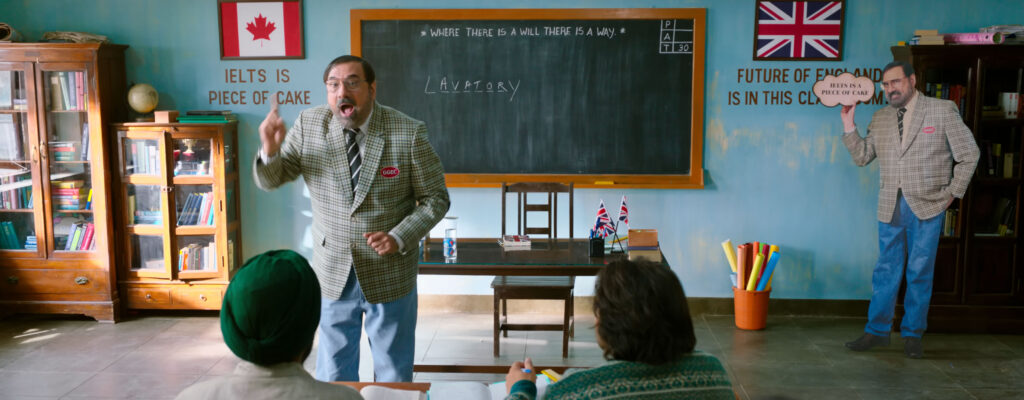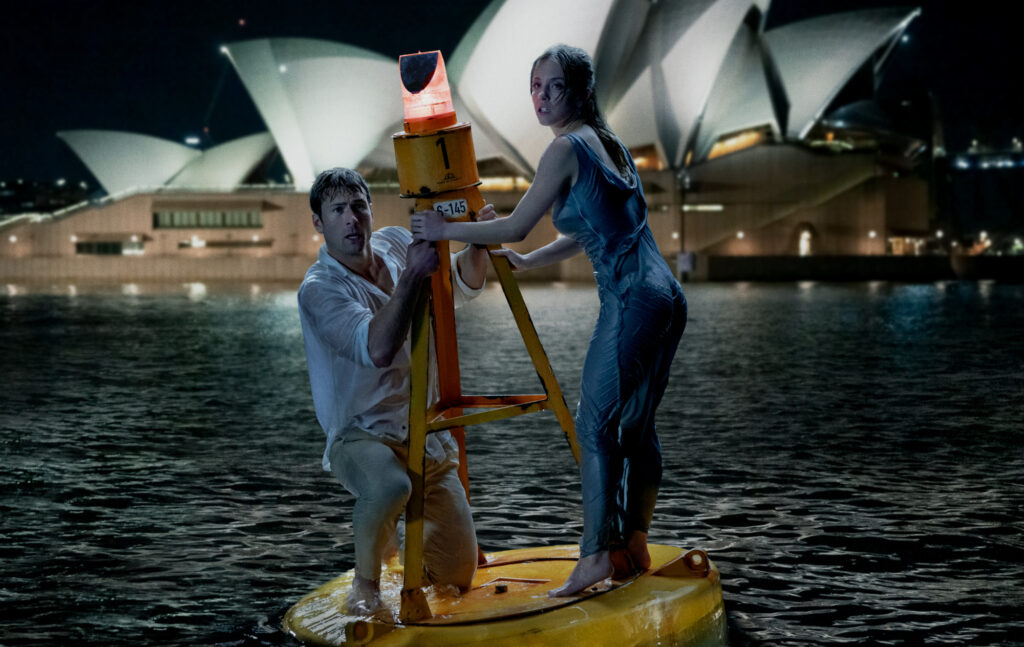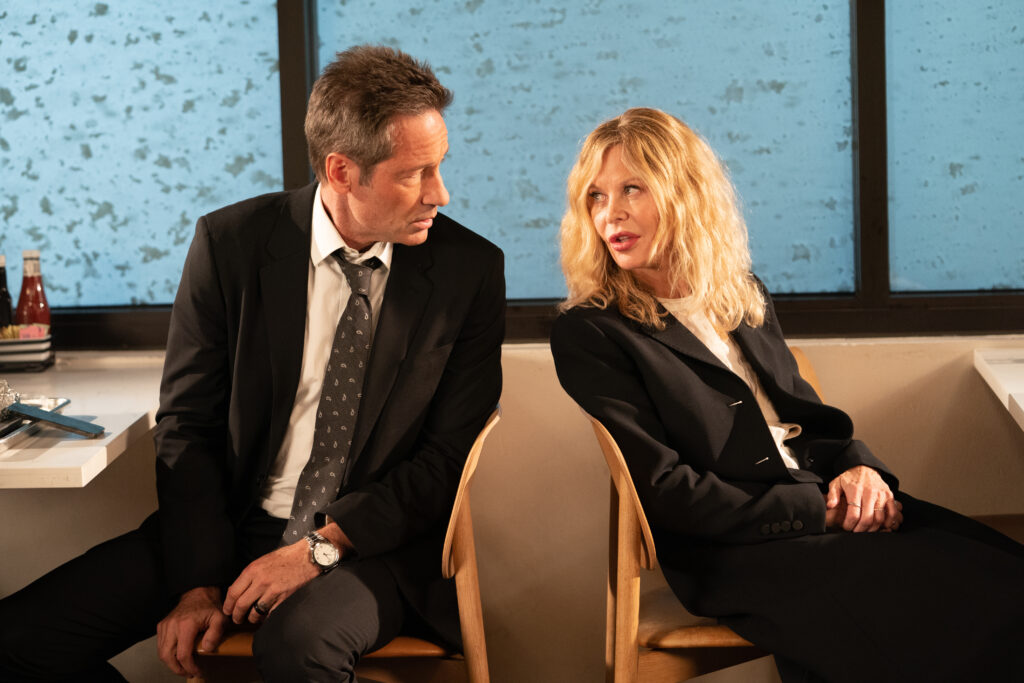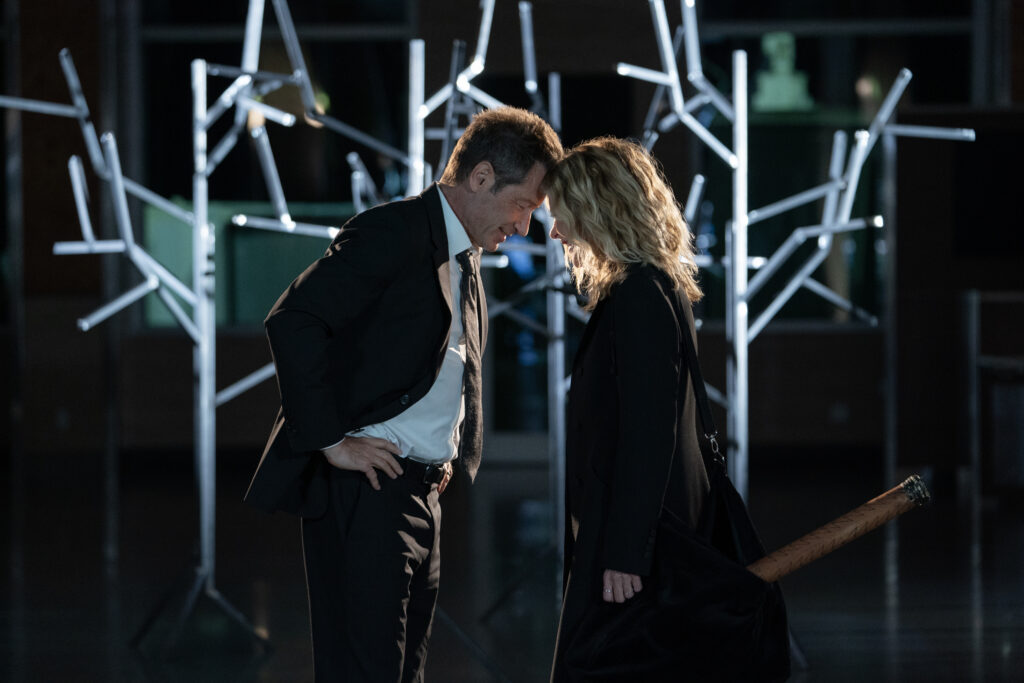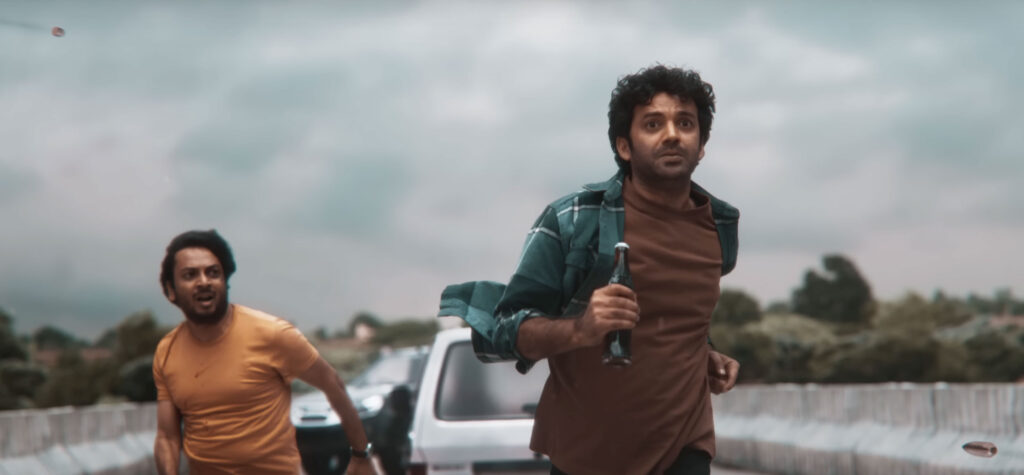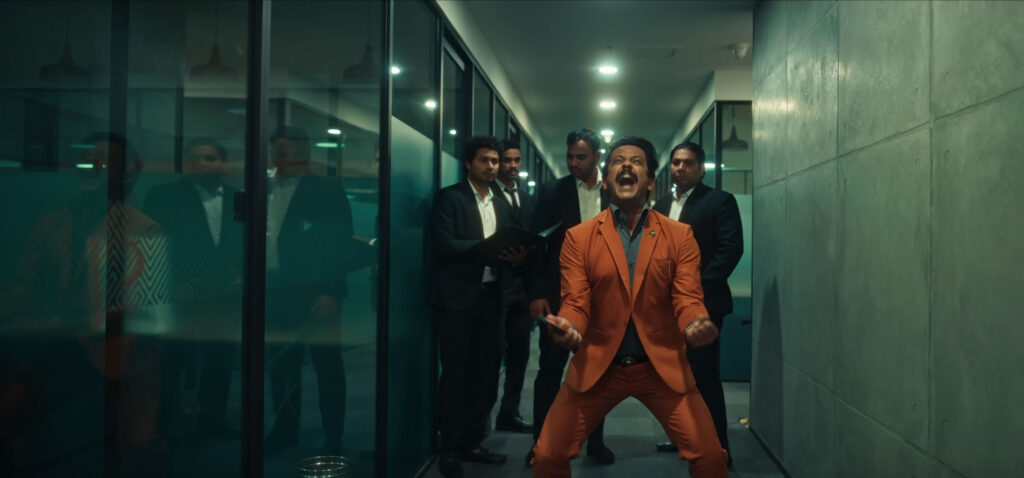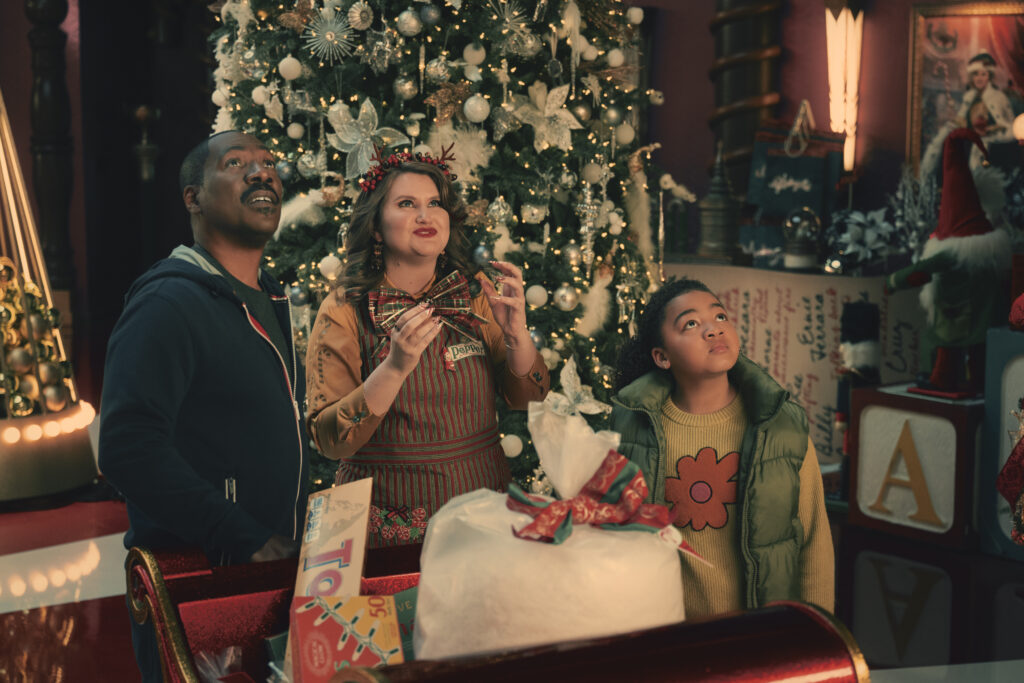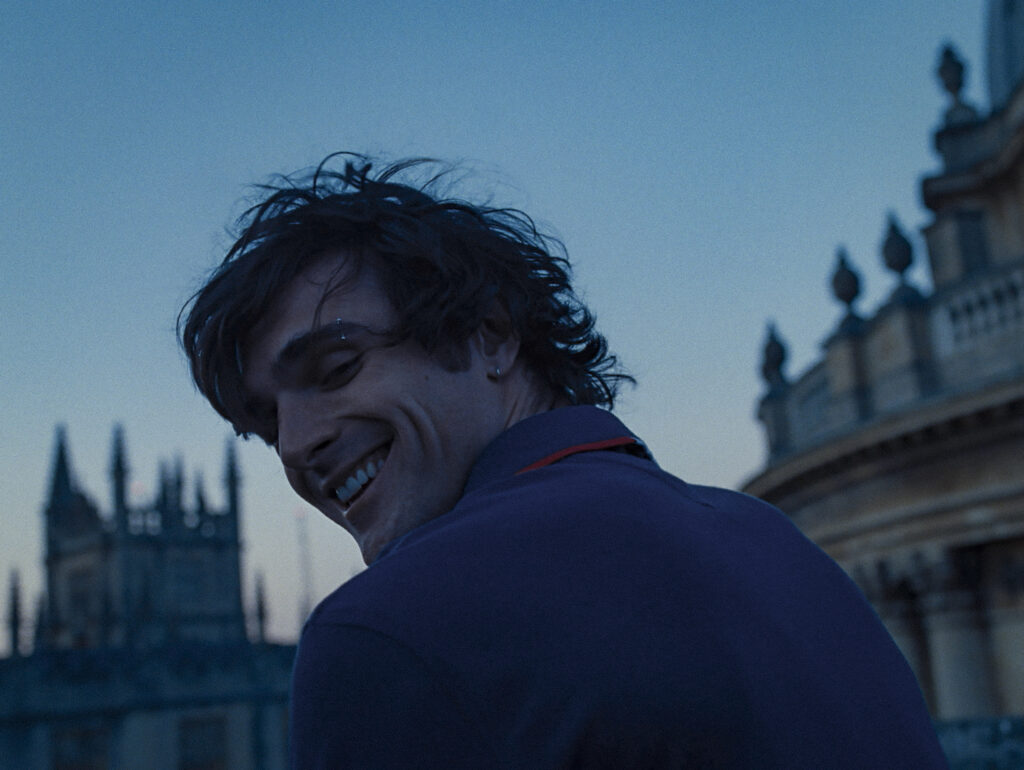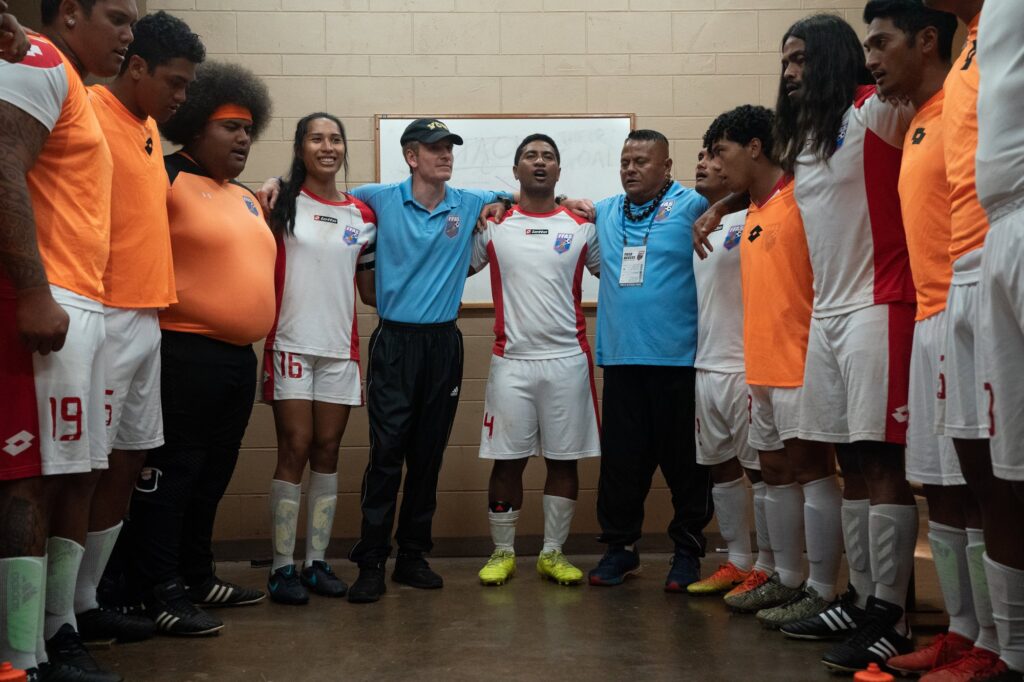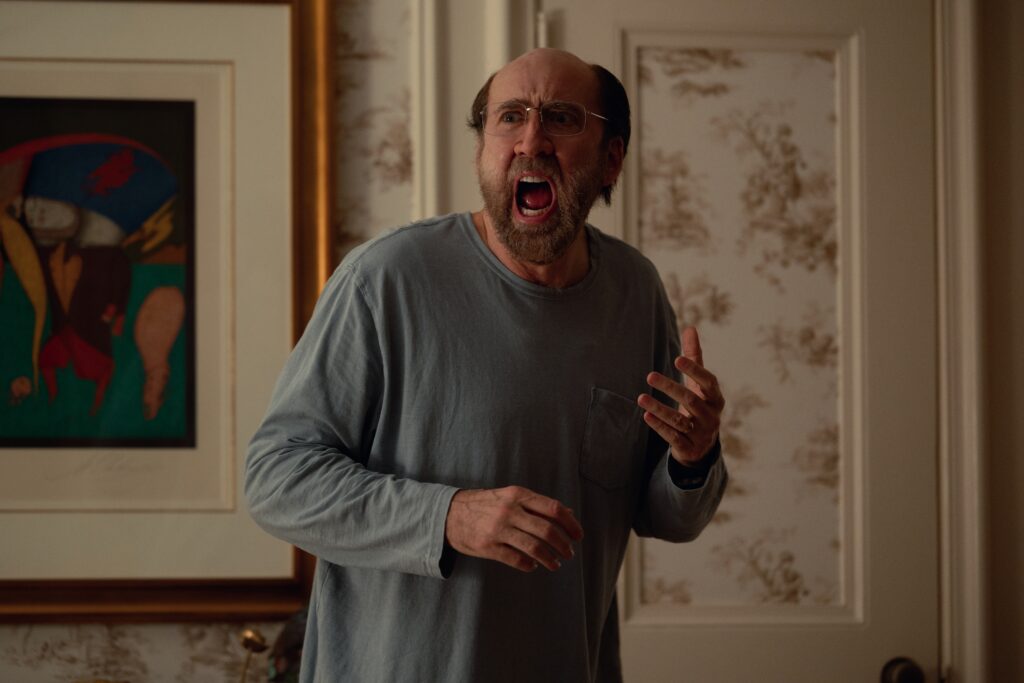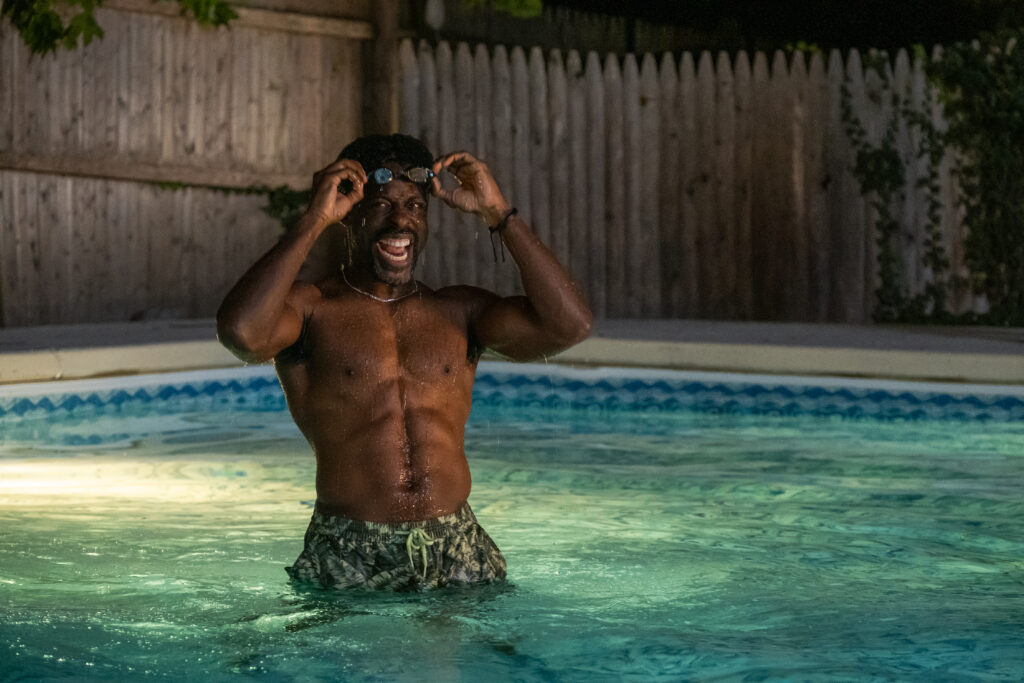January 9, 2024
by Carla Hay

Directed by Sara Zandieh
Culture Representation: Taking place in Charlotte, North Carolina, and briefly in the Bahamas, the comedy film “The Other Zoey” features a predominantly white cast of characters (with a few African Americans and Asians) representing the working-class and middle-class.
Culture Clash: A college student who is cynical about love finds herself impersonating the new girlfriend of a schoolmate who has amnesia, because the cynic feels guilty about being resonsible for the accident that caused his amnesia.
Culture Audience: “The Other Zoey” will appeal primarily to fans of predictable romantic comedies that are elevated by cast members with good comedic talent.

When it comes to romantic comedies about identity deception, there are many that are a lot worse than “The Other Zoey.” Josephine Langford’s charming performance is the main reason to watch when the movie starts veering into eye-rolling ridiculousness. It’s a mixed bag of a movie where some of the writing is sharp and witty, while some of it is dull and hokey.
Directed Sara Zandieh and written by Matthew Tabak, “The Other Zoey” takes place mostly in Charlotte, North Carolina, where the movie was filmed on location. At the fictional Queens University of Charlotte, student Zoey Miller (played by Langford) prides herself on being an independent intellectual. Zoey is very jaded about love. She’s not against falling in love, but she thinks people should be more practical about choosing the correct love partner.
The movie’s opening scene takes place in a classroom at the university. A student named Becca (played by Amalia Yoo) is giving a presentation about St. Valentine to the class. And sure enough, outspoken Zoey interrupts Becca’s presentation and announces to the class: “The whole concept of falling in love and even romantic love is a product of capitalism.”
Zoey says she believes in romantic love “if it’s based on compatibility. That’s really hard, which is why I actually created my own app. It matches people on a data-driven compatibility report.” As students leave at the end of the classroom session, Zoey continues to shamelessly promote her “compatibility app” and says she’s looking for investors. The other students just don’t care.
For someone who dismissively thinks that “romantic love is a product of capitalism,” Zoey fails to see the irony that her app is part of the capitalism that she claims to dislike. It’s the first clue that Zoey says one thing but might be feeling another way in her heart. It’s a predictable stereotype of a romantic comedy heroine who thinks she doesn’t need anyone to fall in love with, until she unexpectedly finds “the one” and changes her mind about love.
And here comes another rom-com cliché: the heroine’s best friend, who usually has an opposite personality and is usually the one who plays a big role in whether or not the heroine will end up with the intended love interest. In “The Other Zoey,” Zoey’s best friend and roommate is named Elle (played by Mallori Johnson), who is an artsy romantic, in contrast to Zoey being a tech-oriented cynic.
Outside in a lawn area on campus, Becca is annoyed with Zoey for trying to embarrass Becca during the presentation. Becca and a friend approach Zoey and Elle in a hostile manner by scolding Zoey about her sales presentation in the classroom. Becca sneers at Zoey by saying that Zoey should put the word “cynic” next to the words “tech geek” on her résumé. Someone needs to tell Becca that in order for insults between adults to work, they can’t sound like they come from the mind of a 7-year-old child.
Faster than you can say “meet-cute moment,” Zoey gets hit on the head by a soccer ball that was accidentally kicked in her direction by the star player of the school’s soccer team, which has some members casually playing a game nearby. The soccer star’s name is Zach McLaren (played by Drew Starkey), and he runs over to Zoey to say he’s sorry about the mishap. Zoey is not amused and is abrupt with Zach during his apology.
As Zoey and Elle walk away, Elle gushes over how Zach is one of the school’s biggest heartthrobs. Zoey isn’t impressed and asks what Zach’s grade point average is. Rom-com cheesy line of dialogue alert: Elle exclaims, “Hella fine point 9!”
Soon afterward, Zoey goes to another lecture, where the topic is about romantic love. And what a coincidence: A good-looking guy who’s slightly older than Zoey stands up in the room and says that romantic love is a product of capitalism. He also quotes author/philosopher Alain de Botton as someone he admires. Guess who’s also a fan of Alain de Botton?
Zoey is intrigued by this stranger, who has the same views on love that she does. Will she see him again? Of course she will, in a very “rom-com coincidence.” She finds out later that his name is Miles McLaren (played by Archie Renaux), and he’s Zach’s cousin.
As part of a work/study program, Zoey has a job at a bookstore, where one day Zach walks into the store because he’s looking for a book on a video game called “Battle Toads.” Zoey has a snooty attitude toward video games and isn’t afraid to say so to Zach. They exchange some sarcastic banter. Zach pays for the book and leaves.
However, Zach accidentally left his credit card behind at the store. Zoey runs out of the store to see if she can find Zach so that she can return his credit card to him. She sees him riding his bike, runs after him, and yells that she has his credit card. Zach hears her and gets distracted, which is right when he gets hit by a car.
Zach has a hard tumble on the ground, which causes a head injury. Zoey is horrified that she unintentionally caused this accident. Zach is conscious but he’s dazed and confused. When he sees Zoey, he kisses her on the cheek, as if he knows Zoey very well. Zoey is embarrassed but thinks that Zach is disoriented and has her mistaken for someone else.
Zach is rushed to hospital, where Zach and his parents Connie MacLaren (played by Andie MacDowell) and Matt McLaren (played by Patrick Fabian) find out that Zach has amnesia. Zoey has gone to the hospital to see how Zach is recovering. She introduces herself to Zach’s parents and is shocked to find out that they think that Zoey is Zach’s new girlfriend Zoey Wallace (played by Maggie Thurmon), whom the parents haven’t met yet. Apparently, Zach never took photos of Zoey Wallace because he fully believes that the Zoey at the hospital is Zoey Wallace.
Through conversations, Zoey Miller discovers that Zoey Wallace and Zach have been dating each other for only two weeks, but things have gotten hot and heavy with them. Zoey Wallace is currently in the Bahamas, on vacation with her parents (played by Christie Lynn Smith and William Pierce Lackey, also known as Pierce Lackey), who don’t have first names in the movie. Zoey Wallace hasn’t heard from Zach and doesn’t know about the accident and his amnesia. Zoey Wallace thinks Zach is ignoring her, and she’s paranoid that it’s because he has another love interest.
The scenes with Zoey Wallace (who is whiny and annoying) and her parents are some of the worst scenes in the movie. Thankfully, these Wallace family scenes are brief. When Zoey Wallace starts to have a tearful meltdown about not hearing from Zach, her mother says: “Wallaces don’t wallow. And crying causes wrinkles. Just know that.”
Meanwhile, Zoey Miller feels guilty about the role she had in the accident that caused Zach’s amnesia. She doesn’t want to upset him, so she pretends that she’s Zoey Wallace for most of her time with Zach. Elle thinks it’s cute and advises Zoey to keep up the charade. It’s bad advice, of course, but there would be no “The Other Zoey” movie if Zoey Miller didn’t take this advice.
After Zach is discharged from the hospital, his parents invite Zoey Miller (whom they think is Zoey Wallace) on a family skiing trip. Also on this trip is Zach’s bratty and meddling sister Avery (played by Olive Abercrombie), who’s about 10 or 11 years old. And surprise! There’s another family member on the trip: Zach’s cousin Miles, who is a grad student at MIT and is visiting for the weekend.
When Zoey Miller sees Miles again, there’s chemistry between them that they can’t deny. But what’s a rom-com heroine to do when she’s pretending to be someone else’s girlfriend but she really wants to date his cousin? Zoey Miller thinks Zach is beneath her intellect and she has much more in common with Miles, who would pass her “compatibility test” if she had this “compatibility app” that she keeps talking about inventing.
If you’ve seen enough romantic comedies, then you know exactly how the rest of this story will go. There’s a breezy tone to “The Other Zoey” that makes it easier to tolerate some of the movie’s cringeworthy dialogue. On the positive side, Langford and Johnson make a very watchable comedic duo when they have scenes together. The other cast members give adequate performances.
“The Other Zoey” goes off on a few unnecessary tangents, such as showing that when Zoey Miller is away, Elle meets a food delivery guy named Diego (played by Jorge Lopez) and hooks up with him. It might be the movie’s way of trying to prove that Elle isn’t just an underdeveloped sidekick and has as a life outside of her friendship with Zoey. But it still looks like a forced and awkward subplot, because Elle is still an underdeveloped sidekick.
Heather Graham has a small role in the movie as Zoey Miller’s divorcée mother Paula, who has a close relationship with Zoey and is the voice of reason when Zoey (who is an only child) confides in Paula about her personal problems. Paula isn’t given much to do in the movie. She seems to be there to make viewers aware that Zoey is probably neurotic about love because Zoey’s parents got divorced.
“The Other Zoey” is not the type of movie that wants viewers to wonder too much about the main characters’ backstories. The movie is very lightweight entertainment and doesn’t try to be anything else. It’s the type of romantic comedy that’s not intended for people who are as pessimistic about love as Zoey Miller is at the start of the movie. And that’s why the intended viewers are most likely to keep watching “The Other Zoey,” until the very end and will be satisfied by the expected results.
Brainstorm Media released “The Other Zoey” in select U.S. cinemas on October 20, 2023. The movie was released on digital and VOD on November 10, 2023.


